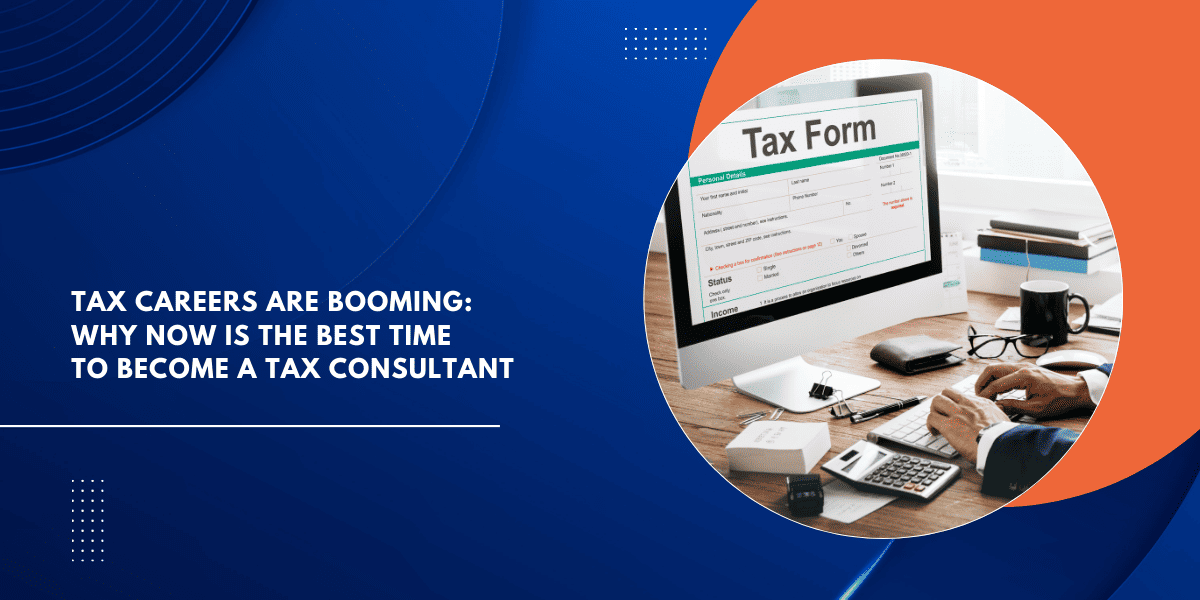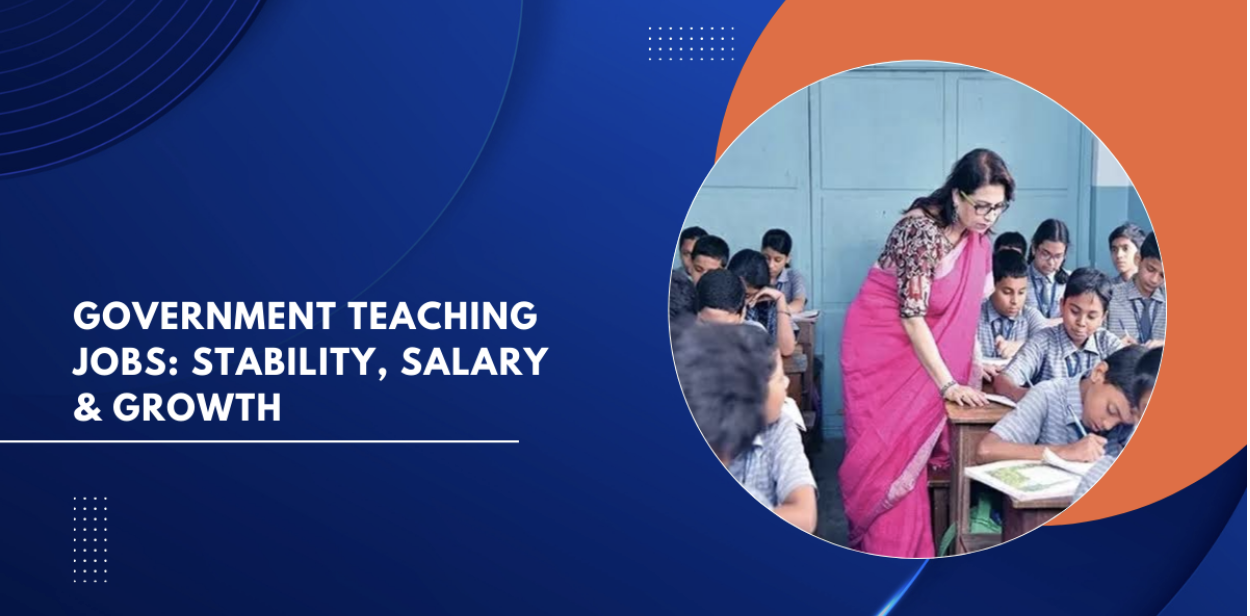Introduction: Why This Career Matters Today
How many hours does your child spend online—browsing Instagram, watching YouTube, shopping on Flipkart, or searching on Google? Behind all that screen time, there’s a powerful industry connecting the dots: digital marketing.
But as a parent, how do you know if this screen-heavy interest can become a serious career path—and not just a distraction?
In today’s world, the internet isn’t just a tool—it’s a primary driver of business. Brands across industries rely on digital marketing to connect with their audience, generate leads, and stay relevant. According to Dentsu India, the digital advertising market is projected to grow at a staggering 30.2% CAGR, reaching ₹35,809 crore by 2026.
So, is digital marketing a good career in India for your child? The short answer: it can be—if approached the right way.
It’s about more than just social media posts or ads. It involves understanding what people want, building strategies that make businesses stand out online, and sometimes even influencing cultural trends.
Some young professionals are already turning their interest in content creation, storytelling, or analytics into stable, exciting careers—with flexibility, solid pay, and fast growth.
Take Anaya Roy, a 21-year-old from Kolkata. She started by managing her college’s Instagram page during her English degree. One internship later, she was hired by a digital agency—just months after graduating. Her parents were unsure at first, but today they’re proud of her journey and the work she does.
If you’re a parent exploring whether this could be a meaningful career choice for your child, let’s break it down—what digital marketing actually involves, who thrives in it, and what to consider before jumping in.

What Does a Digital Marketer Do?
Many students assume this career is about posting on Instagram—but as you can see, it’s a mix of strategy, technology, content, and data. If you’re exploring a career in digital marketing for students, it’s important to understand the full scope of responsibilities involved.
Here are the key digital marketing job roles your child could explore:
- Search Engine Optimization (SEO)
This involves adjusting website content, inserting relevant keywords, and improving site speed or mobile responsiveness to boost rankings on Google Search. Higher rankings usually lead to more traffic—without paid ads. - Social Media Management (SMM)
It goes far beyond just uploading posts. Social media managers plan content calendars, design visuals, write tailored captions, and engage with followers through comments, direct messages, and interactive stories to build community and brand loyalty. - Content Marketing
This could involve writing blog posts, creating YouTube videos, designing infographics, or scripting short-form videos for platforms like Instagram Reels. The aim is to educate, entertain, and draw in the right audience consistently. - Paid Advertising
Using platforms like Google Ads, Meta Ads (Facebook/Instagram), or LinkedIn, digital marketers create targeted ad campaigns. These are built to generate clicks, drive traffic, boost conversions, or promote brand visibility quickly. - Email Marketing
Marketers craft email newsletters, offers, and updates that land directly in a subscriber’s inbox. This channel helps brands maintain a direct line of communication and often leads to repeat engagement or sales. - Analytics and Reporting
Platforms like Google Analytics and Meta Insights allow marketers to study user behavior. They monitor which strategies are working and fine-tune future campaigns using real data.
Depending on their focus, your child might also collaborate with graphic designers, video editors, or web developers to create cohesive campaigns.
And the best part? Whether your child comes from a science, commerce, or arts background, they can carve out a place in this field by learning the right tools and keeping up with evolving digital trends.
Top Trends Shaping Digital Marketing Careers in 2025
Digital marketing isn’t standing still—it’s evolving faster than most industries. If your child is considering this field, staying updated with trends isn’t optional. It’s part of the job.
According to HubSpot’s 2024 State of Marketing Report, over 70% of marketers now use AI-powered tools for content creation and customer engagement. Here are six key trends your child should be aware of if they’re thinking about building a future in digital marketing:
1. AI in Marketing
It must be noted that AI tools are speeding up tasks—but not replacing creativity. Platforms like ChatGPT, Jasper, and Google’s AI integrations are helping marketers generate copy, automate replies, and analyze consumer behavior faster than ever.
But while automation handles the grunt work, it’s still the human mind that shapes brand tone, emotional storytelling, and creative strategy.
So, students who enjoy experimenting with AI while thinking creatively will thrive here.
2. Voice Search & Smart Devices
With more users relying on Alexa, Siri, and Google Assistant, marketers now need to write content that sounds natural when spoken. This includes using conversational keywords and answering specific questions.
Students with an interest in tech trends and content strategy can build valuable skills in this space.
3. Ever-growing Popularity of Short-Form Videos
Platforms like TikTok, Instagram Reels, and YouTube Shorts dominate user engagement. Brands use short videos (under 60 seconds) to explain products, share behind-the-scenes moments, or entertain.
This trend opens up opportunities for visual thinkers and students who are comfortable experimenting on camera or editing apps like CapCut and Canva.
4. Data-Driven Decision Making
Tools like Google Analytics 4, SEMrush, and Meta Business Suite allow marketers to track user behavior, test different strategies, and improve campaign performance based on hard data.
Students who enjoy problem-solving or working with data will find strong footing in this area.
5. Rise of Influencer Marketing
Brands are collaborating with micro- and nano-influencers—people with smaller but loyal online communities. Marketers manage these partnerships and track how well each one performs.
Students active on social platforms with an interest in branding or communication could excel in managing or becoming influencers.
6. Remote Work & Global Clients
Thanks to the internet, a digital marketer in India can work with clients from the US, Europe, or Middle East—without ever leaving home. Many agencies also hire remote interns and freelancers.
For students seeking flexibility and global exposure, digital marketing offers a modern career path without borders.
Should Your Child Consider a Career in Digital Marketing?
If your child is drawn to how online platforms work, enjoys experimenting with creative content, or seems at ease using new tech tools, digital marketing could be more than just a casual interest—it might be a career worth exploring.
But how can you tell if this path actually fits them?
Quick Parent Checklist:
Does your child…
✅ Enjoy creative projects like videos, blogs, or designing?
✅ Show interest in how YouTube, Instagram, or Google work behind the scenes?
✅ Get excited by tools, data, or experimenting with online trends?
If they say yes to even 1 or 2 of these, it’s worth exploring small projects or free certifications to test their interest further.
You don’t need to master the tools—but showing openness and support gives your child the courage to try. Let them run a blog on WordPress, start a YouTube channel, or take up a short internship. These hands-on experiences are the most reliable way to understand if they enjoy the work—not just the idea of it.
Digital Marketing Hiring Trends & Career Scope in India
When parents or students ask, “Is digital marketing a good career in India?”—I start with this: it’s one of the fastest-growing industries in the country right now.
With over 800 million internet users in India (source: TRAI), businesses from hyperlocal stores to multinational corporations—are racing to connect with digital audiences. Digital marketers play a crucial role here. They don’t just promote products—they shape brand identities, generate leads, and build customer loyalty across platforms like Google, Instagram, YouTube, LinkedIn, and Twitter.
Digital marketing in India is booming—and it’s only going to get bigger. According to the Dentsu India Digital Advertising Report 2023, the country’s digital ad market is projected to grow at over 30% annually, reaching ₹35,809 crore by 2026. That translates into a growing demand for skilled professionals across industries. Thus, businesses are shifting their ad spends from traditional to digital channels faster than ever before.
In-demand digital marketing job roles include:
- SEO Specialist
- Content Marketer
- Paid Ads Expert (Google & Meta)
- Social Media Manager
- Email Marketing Executive
These roles span sectors like e-commerce, education, healthcare, fintech, hospitality, and even government-led initiatives.
With this level of growth, even students from non-tech or creative backgrounds can find meaningful roles—if they start learning the right tools and skills early on.
Whether your child is entering college or considering a career switch later, digital marketing offers a strong, adaptable career path with opportunities across India and beyond.

How Top Industries Use Digital Marketing Today?
Digital marketing isn’t limited to just one type of company. From tech startups to fashion retailers, almost every industry today needs professionals who can plan campaigns, run ads, and grow online engagement. Here’s how different sectors are hiring and using digital marketers:
E-commerce
Brands like Nykaa, Flipkart, and Meesho use digital marketing to run targeted ads and drive festive or seasonal sales.
Typical roles:
- Running Google Ads and display campaigns
- Writing SEO blogs and product descriptions
- Collaborating with influencers on platforms like Instagram
- Optimizing product pages for conversion
EdTech
Platforms such as BYJU’S, Unacademy, and Vedantu rely on marketing to attract students and scale app installs.
Typical roles:
- Creating YouTube explainer videos
- Managing performance ads on Google and Meta
- Automating emails via tools like Mailchimp
- Running student-focused campaigns during exam seasons
Travel & Hospitality
Companies like MakeMyTrip and OYO promote offers and build trust through visual storytelling.
Typical roles:
- Creating engaging content for Instagram Reels and YouTube Shorts
- Optimizing websites for search visibility (SEO)
- Managing seasonal campaigns across search and social
- Responding to customer reviews and queries via social platforms
Healthcare
Hospitals and wellness brands are using digital marketing to help patients discover services online.
Typical roles:
- Writing informative blog posts on medical topics
- Managing Google PPC ads for location-based searches
- Running multilingual content campaigns for broader reach
- Tracking user behavior through Google Analytics
Startups
Early-stage companies often build their entire brand presence online—making digital marketers essential from day one.
Typical roles:
- Managing social media accounts and brand voice
- Designing WordPress landing pages
- Writing ad copy and tracking performance metrics
- Using tools like Canva, Meta Business Suite, and SEMrush for end-to-end execution
So if your child is drawn to a specific industry—like fashion, healthcare, or travel—they can still thrive in digital marketing by aligning their skills with that sector’s unique demands.
Step-by-Step Guide to Starting in Digital Marketing
You don’t need a costly MBA or tech background to begin. In digital marketing, skills and curiosity matter more than degrees—making it an ideal option for motivated students ready to learn by doing.
Entry-Level Roles to Start With
Students can begin their journey in roles such as:
Digital Marketing Intern
SEO Executive
Content Assistant
In these roles, you’ll get hands-on experience with:
- Tools like Google Analytics, Meta Ads Manager, Canva, and WordPress
- Writing copy for social media and blogs
- Building basic landing pages
- Running test campaigns on small budgets
Certifications That Help Build Credibility
After gaining some exposure, students can add industry-recognized certifications to strengthen their profile:
- Google Ads Certification
- Meta Blueprint
- HubSpot Academy (Content, Email, Inbound Marketing)
- Semrush SEO Toolkit Course
These credentials show that you’re serious—and they’re free or low-cost.
Career Growth in 6–18 Months
With consistent practice and certifications, students can progress into full-time roles such as:
- Digital Marketing Executive
- Social Media Manager
- Content Strategist
- Email Marketing Specialist
Within 6–18 months, it’s realistic to move from intern to specialist roles—especially if they’ve built a portfolio of work along the way.
Long-Term Career Paths
As experience grows, so do opportunities. Many professionals advance to senior-level roles like:
- Performance Marketing Specialist
- Brand Manager
- Growth Marketer
- Chief Marketing Officer (CMO) at startups or digital-first brands
In this field, the path is flexible—and the more you create, test, and learn, the more doors open.
For Parents:
Unlike traditional careers, this is a space where practical skills and a strong portfolio matter more than formal degrees. That means your child doesn’t need to wait for a master’s degree to begin—they can start early, explore real projects, and grow as they go.
Salary Expectations in Digital Marketing
Digital Marketing Salary in India: Entry to Senior Roles
Let’s talk numbers—because salary often shapes decisions. The good news? Digital marketing offers strong earning potential without needing expensive degrees. Here’s a breakdown of typical salaries in India, based on current hiring trends:
What You Can Expect to Earn?
- Entry-Level (Interns, SEO Executives, Junior Associates)
₹3–5 LPA – For those starting out with agencies or early-stage startups. - Mid-Level (3–5 years of experience in Google Ads, Social Media, Email Marketing)
₹8–15 LPA – For specialists managing campaigns, content calendars, and performance reports. - Senior-Level (Digital Marketing Managers, Performance Heads, CMOs)
₹20 LPA and above – Especially in funded startups, tech companies, or D2C brands.
According to Naukri.com’s Career Insight Tool, roles in performance marketing, marketing automation, and digital analytics are among the top 10 fastest-growing careers in India today.
Why This Matters?
What makes digital marketing stand out? It offers a high return on time—students can start early, upskill fast, and move up quickly. Unlike traditional fields, there’s no need to spend lakhs on postgraduate degrees just to get started.
A Practical Career Choice for Families
For parents and families exploring cost-effective, future-focused career paths, digital marketing offers early entry, stable demand, and long-term leadership potential—all while building real-world skills from day one.
Must-Have Skills to Succeed in Digital Marketing in 2025
Digital marketers today need more than just creativity—they need to blend storytelling, data fluency, and tool expertise. Whether your child is inclined toward writing, analytics, or social media, the field has room for diverse strengths. Here’s what the most successful professionals are mastering right now.
Core Digital Marketing Skills
- Search Engine Optimization (SEO) – Learn how to make content rank on Google through keyword research, on-page optimization, and link-building.
- Pay-Per-Click (PPC) – Master paid ad platforms like Google Ads and Meta Ads Manager to run campaigns and track ROI.
- Content Marketing – From writing blog posts to scripting videos, content creators need to know what engages their audience—and why.
- Social Media Strategy – Understand how to build community, schedule content, and analyze reach across platforms like Instagram, Facebook, LinkedIn, and YouTube.
- Email Marketing – Learn to write compelling email copy, segment audiences, and automate follow-ups using tools like Mailchimp and Sendinblue.
Data & Analytics Skills
- Google Analytics & GA4 – Track user behavior, site performance, and campaign outcomes. A non-negotiable for serious marketers.
- A/B Testing & CRO – Learn how to test content, optimize landing pages, and improve conversions through real-time experiments.
- Marketing Automation – Platforms like HubSpot Academy, Zoho, and Salesforce are in demand for automating lead flows and nurturing campaigns.
Soft Skills That Matter
- Creativity – Whether you’re writing ad copy or planning a reel, your content needs to stand out.
- Adaptability – Tools, platforms, and trends shift fast. Be ready to unlearn and relearn every few months.
- Communication – You’ll collaborate with writers, designers, coders, and clients. Clear, confident communication is essential.
- Analytical Thinking – Reading dashboards and acting on insights is just as important as campaign ideation.
Certifications That Help You Get Started
Free and recognized certifications are a great way to build credibility:
- Google Skillshop
- HubSpot Academy
- Meta Blueprint
Real Growth Comes from Practice
Learning theory is important, but nothing beats hands-on experience. Encourage your child to start a blog, manage a passion-project Instagram page, or help a local business with their online presence.
For Parents: A Path That Doesn’t Require a Tech Degree
Even if your child isn’t highly technical, they can do well in digital marketing by starting with writing, visual storytelling, or content planning. Over time, they’ll build confidence with tools and data.
This is a field where skills speak louder than degrees—and learners can carve out their path by showing initiative.
Future Scope of Digital Marketing: Trends & Hiring Landscape (2025–2030)
With the rise of AI tools, personalization, voice search, and short-form video content, digital marketers need to stay ahead of the curve. For instance, brands are now experimenting with AI-generated content and automation tools like ChatGPT for drafting emails or social posts—but these tools still require skilled professionals to manage them effectively.
Here’s a look at the current hiring trends and growth rates in key digital marketing domains:
Domain | Growth Rate / Hiring Trends | Source |
SEO & SEM | 25% increase in job listings in the past year alone. | |
Social Media Marketing | 32% year-on-year growth in influencer marketing and brand collaboration roles. | |
Performance Marketing | High demand for experts in Meta and Google Ads platforms, especially for e-commerce brands. | |
Content Creation | Demand for video marketers increased by 38% due to short-form content platforms like Reels, YT Shorts. | |
Analytics & Automation | 40% rise in roles requiring knowledge of CRM and marketing automation tools. |
These trends show that demand isn’t just rising—it’s diversifying. Whether your child prefers analytics or creativity, there’s room to grow in this ecosystem. As digital marketing continues to evolve, students can find specialized roles that align with their interests, whether that’s working with data or creating content.
Curious if digital marketing suits your child’s strengths?
For Parents: A Rewarding Career Path
In an age where so many careers are becoming automated, digital marketing remains both human-led and opportunity-rich. It offers room for growth, creativity, and a future-proof career in an increasingly digital world. If your child is passionate about staying ahead of trends, this is a field that offers endless possibilities.
Key Considerations Before Pursuing a Career in Digital Marketing
Choosing a Specialization
Digital marketing covers a broad range of fields—search engine optimization (SEO), content marketing, social media marketing, paid ads (PPC), email marketing, affiliate marketing, and analytics. Not every digital marketer works in all areas, so it’s crucial to identify what excites you the most. Whether you’re passionate about writing content, running Facebook ads, or analyzing data in Google Analytics, choosing a specialization helps you focus your efforts and develop relevant skills.
Building a Strong Foundation
A strong understanding of the basics is essential for every digital marketer. This includes knowing how search engines work, how social media platforms function, and what makes content compelling. Mastering skills like writing persuasive copy, optimizing websites for search, and using basic design tools will lay the groundwork for your future success in digital marketing.
Gaining Real Experience
Theory is helpful, but nothing beats real-world experience. Start a blog, manage a social media page, run a small budget Google Ads campaign, or volunteer to help a local business with their digital marketing. These hands-on projects will give you practical knowledge and help you build a portfolio that will impress future employers. Whether your campaigns succeed or flop, you’ll always gain valuable insights that will shape your growth.
Learning Industry Tools
Digital marketing relies heavily on tools. From Google Analytics and Search Console to Meta Ads Manager, HubSpot, Canva, and SEMrush, you’ll need to become proficient with these platforms. Many of them offer free tutorials and certifications, so be sure to take full advantage of these resources. Mastering the tools is just as important as understanding the core concepts of digital marketing.
Planning Campaigns and Analyzing Performance
Successful digital marketing isn’t just about posting content or running ads; it’s about having a solid strategy. Learn how to plan, execute, and measure campaigns by setting clear goals (like traffic, leads, or conversions), defining your target audience, running A/B tests, and measuring performance using key metrics like CTR, CPC, and ROAS. These are essential skills employers look for when hiring entry-level digital marketers.
Staying Updated and Networking
The digital marketing landscape is constantly evolving—platform algorithms change, new tools emerge, and trends shift rapidly. To stay on top of industry changes, follow thought leaders on LinkedIn, subscribe to marketing newsletters like Search Engine Journal or Neil Patel’s blog, and participate in online marketing groups. Networking helps you stay informed, discover job opportunities, and connect with mentors who can guide your career growth.
Conclusion: What This Means for Students & Parents?
If you’re considering a career in digital marketing, it’s more than just a job—it’s about blending creativity, data, and storytelling to help brands grow. The industry offers flexibility, strong demand, and opportunities across various sectors—from e-commerce and media to education and healthcare.
For students thinking about this path, ask yourself:
- Do I enjoy experimenting with tools like Canva, Instagram, or blog platforms?
- Do I get excited by solving problems using content or data?
- Am I willing to learn new technologies and adapt to changes quickly?
Digital marketing allows you to choose a specialization that matches your interests, and there’s always room to grow. Whether you’re drawn to the creative side or enjoy analyzing data, there’s a place for you.
For parents, this career offers a low-cost entry point with a high potential for growth. With skills being more important than formal degrees, digital marketing provides a chance to build a career without spending years in traditional education paths. Plus, as the industry grows, there will be increasing demand for skilled professionals in various niches.
Digital marketing isn’t just about trends—it’s about storytelling, solving real-world problems, and helping brands grow with purpose. If your child thrives on creativity, curiosity, or even quiet analysis—this might be the path where they come alive.
At NextMovez, we help students not only find careers but choose ones that align with their passions and strengths. If you’d like to explore digital marketing in more detail, check out our full guide or Join our Career Compass Masterclass to help your child discover their best-fit career.






















